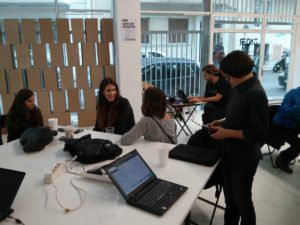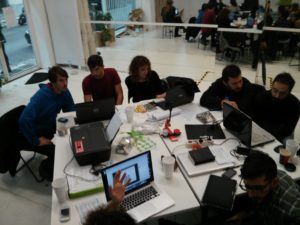James Stevens reported on the off networks mailinglist that we “have been sorting out ourselves after a couple of years work with resync.ug. Some of the outcomes of that initiative will continue to return value and there is plenty of scope to develop applications of these mixed techniques. Now a fresh grouping ‘offline networks’ has come together out of a meeting at Transmediale in Berlin during February, that has appealed for funding from the HORIZON 2020 CAPs initiative.James reported on the SPC blog about the MAZI applications:
Panayotis Antoniadis co-founder of
Nethood has gathered a group of thinkers and network activists around the MAZI project. As part of this initiative, SPC have proposed to revisit the Creekside network in
Deptford and help compose a
Mazi toolkit. With this, we hope to further the operation of local offline network services over the free information infrastructures such as the long lived
OWN. Here he is
talking at a recent floss4p2p event in London.
 “What I had in mind is that the research would focus on an area covered by a local network either permanently or at least during the duration of the project. This network would host locally crafted educational material and floss applications that would showcase emerging tools and technologies. This could be as simple as a single web hosting device offering short-range access or a community mesh network with broader objectives. “
“What I had in mind is that the research would focus on an area covered by a local network either permanently or at least during the duration of the project. This network would host locally crafted educational material and floss applications that would showcase emerging tools and technologies. This could be as simple as a single web hosting device offering short-range access or a community mesh network with broader objectives. “
This preferred area of focus may well coincide with existing mesh node installations.. it’s along the creek so there are indigenous social housing, boating, artistisan, hoodlum, drinking and eating communities as well as inevitable high rise developments and mixed emotions!
SPC has capacity in it’s network to offer uplinks to Mazi for the duration.. Mesh solutions are great for mobile network nodes and for resilience in an unstable environment. Primed with a set of great locations and willing collaborators aplenty, a point to point radial model will ensure greater stability and higher speeds for community needs. We already have a few low power servers and resources available and have set up a mazi subdomain of spc.org
 There is a swell of social, cultural and creative interest along Creekside in Deptford where we have enjoyed success in the past. We hope to rekindle interest and activity in support of the Mazi workshop program and the adoption of a locally delivered alternative to commercial web dependencies. Meanwhile the whole area is being “developed” so there are rising blocks on every quarter isolating areas of Deptford which will present a challenge when fixing links and bridging ideas.
There is a swell of social, cultural and creative interest along Creekside in Deptford where we have enjoyed success in the past. We hope to rekindle interest and activity in support of the Mazi workshop program and the adoption of a locally delivered alternative to commercial web dependencies. Meanwhile the whole area is being “developed” so there are rising blocks on every quarter isolating areas of Deptford which will present a challenge when fixing links and bridging ideas.
The river Ravensbourne snakes from Bromley through Lewisham and opens out after Elverson Road DLR into naturalised riverside alongside Brookmill Park. It retreats into a concrete slot under the A2 at Deptford Bridge DLR and emerges as Deptford Creek up behind LeSoCo (Lewisham College) canyoned by new flats and hotels on the Greenwich side, developments that are set to run the length of Norman Road.

Just as the Creek broadens a little and gets really muddy there is a branch mooring a dozen barges and smaller boats. On land there are a similar array of trailers and vans where people live and work. At the top of Creekside on the corner of Deptford Church Street is the Birdsnest live music pub and local flux point. The yard that wraps around it features Big red Pizza Bus and an array of related performance and construction trades. Other adjacent properties are in progress of reactivation in the sweep of enthusiasm for SE8. APT (artists in perpetuity trust) purchased the old factory building in 1995 and their community of traditional crafts practitioners are at the core of Deptford artist reputation.
Creekside Education Centre has the only direct access to the creek. Boundless broadband coop was first implanted here in 2004, and is still operating an OWN node today. Over the road is the Crossfields council housing estate, repopulated by young families, artists and musicians in 1970’s and regularly commented on. Thereafter it’s a pick n mix run of light industrial yards, Scaffolders, Machinists, Work Units, Art Studios, Cockpit Arts, Laben Dance and bonanza of real estate prospectors with plans to block out the light.
 A 2nd world war Minesweeper is moored alongside one of few remaining light industrial estates off Norman Road. It has a mixed crew of arty anarchos who screen print t-shirts and lead on refurbishment of the aged hull, host great parties and a flotilla of smaller boats. Madcap Coalition have just moved to one of the remaining warehouses adjacent to the cement works by the Creek Road lifting bridge. Finally at the mouth a new pedestrian swing bridge links between swanky new condo’s before the creek tips into the Thames.
A 2nd world war Minesweeper is moored alongside one of few remaining light industrial estates off Norman Road. It has a mixed crew of arty anarchos who screen print t-shirts and lead on refurbishment of the aged hull, host great parties and a flotilla of smaller boats. Madcap Coalition have just moved to one of the remaining warehouses adjacent to the cement works by the Creek Road lifting bridge. Finally at the mouth a new pedestrian swing bridge links between swanky new condo’s before the creek tips into the Thames.
More, much more info about the area and it’s many great features, ideas and activities are reported in a clutch of local blogs, projects and innovations to numerous to detail here.
Here is the MAZI project outline;
Do-It-Yourself networking refers to a conceptual approach to the use of low-cost hardware and wireless technologies in deploying local communication networks that can operate independently from the public Internet, owned and controlled by local actors.
MAZI means “together” in Greek and the MAZI project invests in this paradigm of technology-supported networking, as a means to bring closer together those living in physical proximity. Through an experienced interdisciplinary consortium, MAZI delivers a DIY networking toolkit that offers tools and guidelines for the easy deployment and customization of local networks and services.
The MAZI toolkit is designed to take advantage of particular characteristics of DIY networking: the de facto physical proximity between those connected; the increased privacy and autonomy; and the inclusive access. Such characteristics are used to promote information exchanges that can develop the location-based collective awareness, as a basis for fostering social cohesion, conviviality, knowledge sharing, and sustainable living.
To achieve this objective, MAZI brings together partners from different disciplines: computer networks, urban planning and interdisciplinary studies, human-computer interaction, community informatics, and design research. These academic partners will collaborate closely with four community partners to ensure that the MAZI toolkit benefits from the grounded experience of citizen engagement.
MAZI draws from the diverse mix of competencies of its consortium to develop a transdisciplinary research framework, which will guide a series of long-term pilot studies in a range of environments, and enhanced by various cross-fertilization events.
The main goal of this process, and its measure of success, is establishing DIY networking as a mainstream technology for enabling the development of collective awareness between those in physical proximity, and the development of surrounding research and theorizing of this approach.

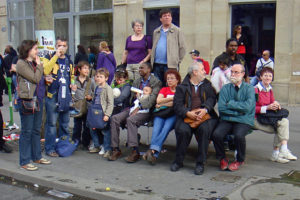
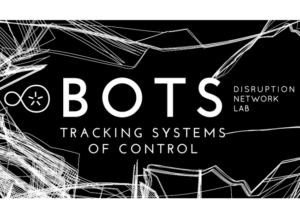
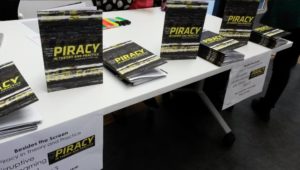
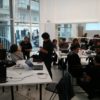
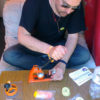 Join us in the lobby area of Haus der Kulturen der Welt on Friday 30th January to make sync code badges and configure your media files, messages and phone things to reSync @ Capture All.
Join us in the lobby area of Haus der Kulturen der Welt on Friday 30th January to make sync code badges and configure your media files, messages and phone things to reSync @ Capture All.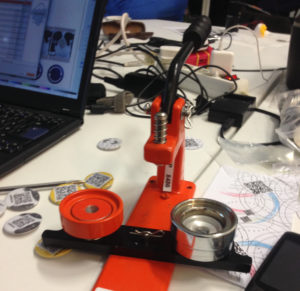 Pick up a flyer sheet and claim a reSync ‘key’, print posters and press your own badges. Each badge features the unique QRcode to promote media from your smart phones, tablets and pc’s using Bit Torrent Sync
Pick up a flyer sheet and claim a reSync ‘key’, print posters and press your own badges. Each badge features the unique QRcode to promote media from your smart phones, tablets and pc’s using Bit Torrent Sync 